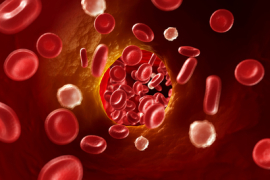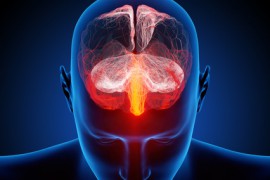A common amino acid found naturally in foods breaks down dental plaque, which means it could potentially help millions of people avoid cavities and gum disease.
L-arginine, which is found in red meat, poultry, fish, and dairy products and is already used in dental products for tooth sensitivity, stopped the formation of dental plaque in lab tests.
“This is important as bacteria like to aggregate on surfaces to form biofilms. Dental plaque is a biofilm,” says Alexander Rickard, assistant professor of epidemiology at University of Michigan.
“Biofilms account for more than 50 percent of all hospital infections. Dental plaque biofilms contribute to the billions of dollars of dental treatments and office visits every year in the United States.”
Biofilm culprits
Dental biofilms are the culprits in the formation of dental caries (cavities), gingivitis, and periodontal disease. Surveys indicate that nearly 24 percent of adults in the United States have untreated dental caries, and about 39 percent have moderate-to-severe periodontitis, a number that rises to 64 percent for those over age 65.
Most methods for dental plaque control involve use of antimicrobial agents, such as chlorhexidine, which are chemicals aimed at killing plaque bacteria, but they can affect sense of taste and stain teeth in addition to killing off good bacteria the body needs. Antimicrobial treatments have been the subject of debate about overuse in recent years.
Pending further clinical trials to verify their lab findings, researchers say L-arginine could take the place of the current plaque-controlling biocide substances including chlorhexidine and other antimicrobials.
“At present, around 10-to-15 percent of adults in the Western world have advanced periodontitis, which can lead to loose teeth and even the loss of teeth. Therefore, there is a clear need for better methods to control dental plaque,” says Nick Jakubovics, a lecturer at Newcastle University’s School of Dental Sciences.
The mechanism for how L-arginine causes the disintegration of the biofilms needs further study, the researchers say, but it appears it can change how cells stick together, and can trigger bacteria within biofilms to alter how they behave so that they no longer stick to surfaces.
For the new study, published in PLOS ONE, researchers used a model system they introduced in 2013 that mimics the oral cavity. They were able to grow together the numerous bacterial species found in dental plaque in the laboratory, using natural human saliva.
“Other laboratory model systems use one or a small panel of species,” Rickard says. “Dental plaque biofilms can contain tens to hundreds of species, hence our model better mimics what occurs in the mouth, giving us great research insight.”
This article was shared and modified from Futurity.org under the Attribution 4.0 International license.
Sources:
This common amino acid may protect your teeth
L-Arginine Destabilizes Oral Multi-Species Biofilm Communities Developed in Human Saliva



